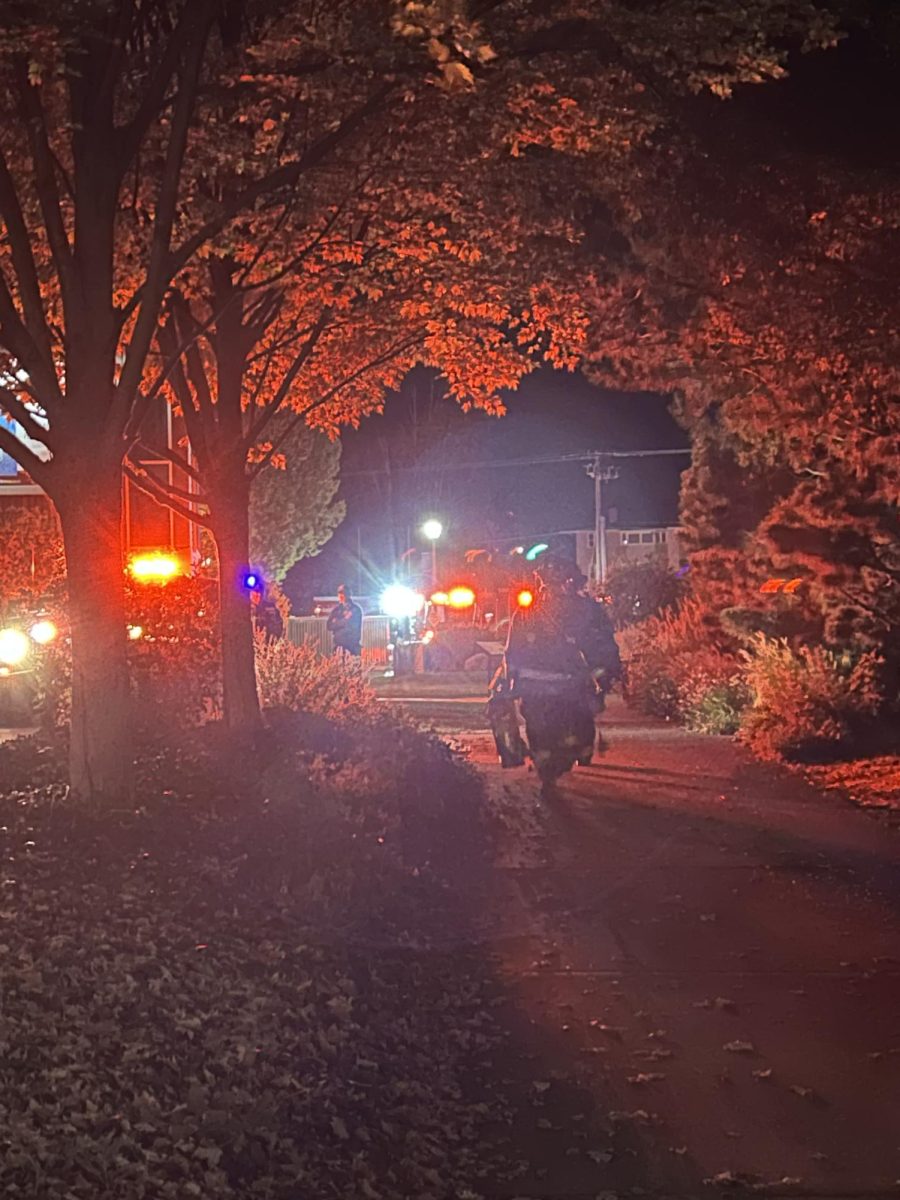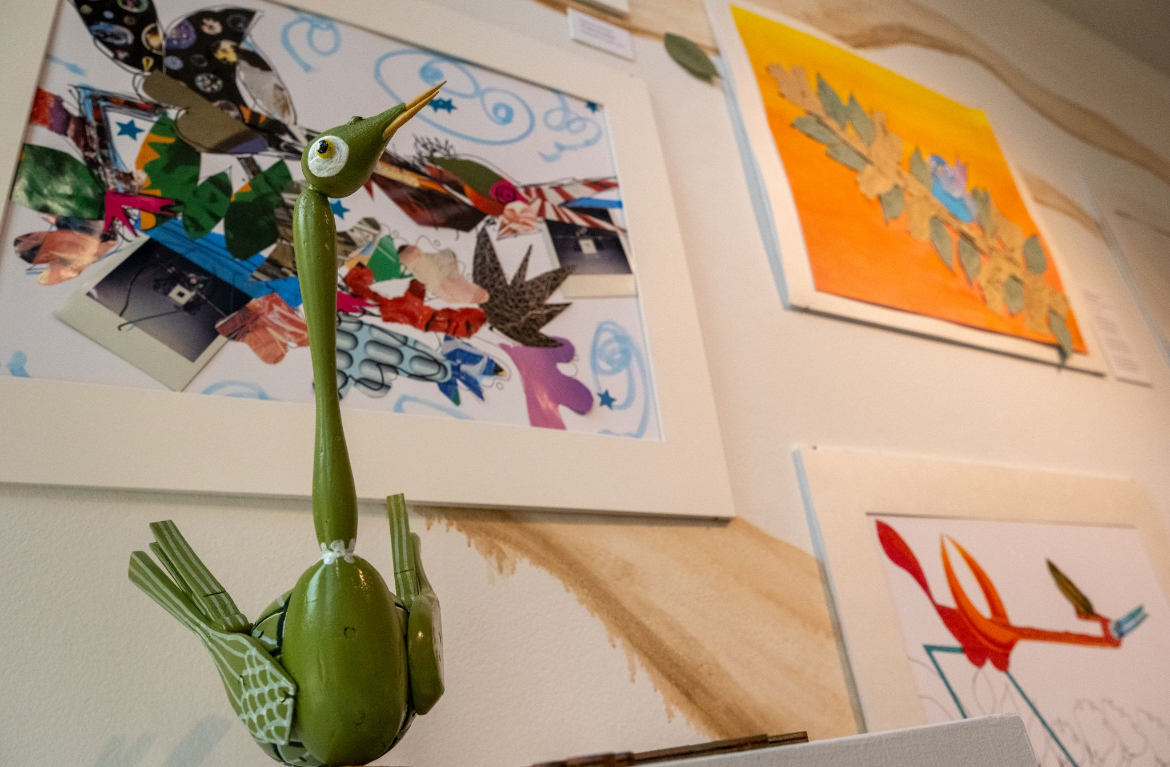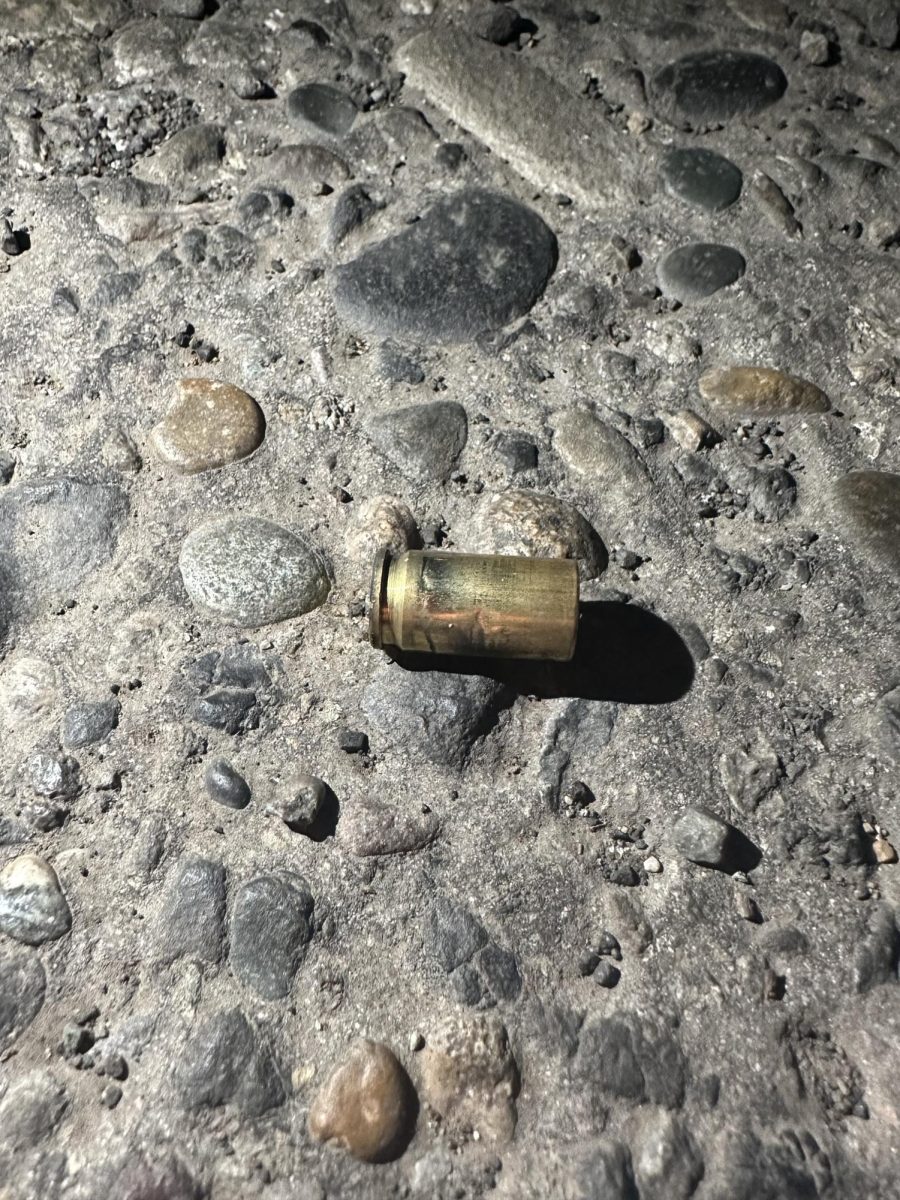This article was written by Shelly Le, Rachel Alexander and Karah Kemmerly. Emily Lin-Jones and Blair Hanley Frank contributed additional reporting.
This article is the second in a three-part series about Whitman’s debate team. Part one examines the debate team’s culture, including accusations made about pervasive sexism and excessive drinking. Part three discusses the transition following Director of Forensics Jim Hanson stepping down, and what having a new, full-time coach will mean for the team.
An editors’ note accompanying this series can be found here.
Whitman’s Title IX investigation into the debate team began in the spring of 2012 after the administration received a report that a Whitman assistant debate coach had sexually assaulted an assistant coach from another school at a tournament.
While Title IX, which was signed into federal law in 1972, is best known for requiring schools that receive federal funds to provide equal funding to athletic programs, its provisions reach far beyond the realm of athletics. The law states that no person should be subjected to discrimination at a federally funded education program based on sex. According to the Supreme Court, those provisions extend to prevention of sexual harassment at institutions governed by Title IX as well.
In a 2011 letter, the U.S. Department of Education reminded educational institutions that sexual misconduct falls under the purview of Title IX and that it is the job of each institution to investigate any claims of sexual misconduct as a part of its compliance with Title IX.
The same letter required schools to designate an employee as the Title IX coordinator, responsible for overseeing any investigations into complaints made under that statute and for rectifying any situations that make students feel unsafe. In response to this directive, Associate Dean of Students Clare Carson was appointed Whitman’s Title IX administrator during the summer of 2011.
The sexual assault case reported to Whitman involved Lindsay VanLuvanee, who was chaperoning the Pocatello High School Debate Team at the Whitman High School Debate Tournament in the fall of 2010. After hanging out with friends at Whitman, an assistant debate coach offered to give VanLuvanee a ride home. VanLuvanee ended up staying at this coach’s house, and she fell asleep watching television with him. VanLuvanee then woke up to the assistant debate coach sexually assaulting her.
VanLuvanee says that she chose not to report the incident to the Whitman administration or local authorities, and she actively hid it from Hanson because she had had a former unrelated, uncomfortable incident reporting a case of sexual assault to the police. However, someone later reported the event to the college without her knowledge or permission. VanLuvanee doesn’t know whether the person who reported it was a debater, a coach or someone else, or when the incident was reported.
When the investigation began in the spring of 2012, VanLuvanee was phoned for a conference call with a Title IX investigation board that asked questions regarding the event and how comfortable she felt reporting sexual assault to the Whitman administration. In addition, the board asked VanLuvanee if she felt that Hanson’s response to the incident was sufficient.
Concerns about procedure
VanLuvanee feels that the questions she was asked during her conference call with the Title IX board placed her in an uncomfortable position.
“Some of the questions they asked me felt very inappropriate. For example, a lot of the questions were focused on Jim, as opposed to the actual person in question or the event itself,” she said. “I felt like I was forced to place judgement on Jim and the team; it felt like the questions required more speculation than perspective and facts that I could offer.”
Other debate members were also called in to answer questions regarding the former assistant debate coach, as well as the general atmosphere of the team and Hanson’s role as debate team director.
Parliamentary debater and rising senior Paige Joki was also called in to speak with the Title IX board. She said that she had been told the college needed help regarding a hiring decision for the debate team. After she went in for questioning, the board told her the hiring decision had been made, but they had questions to ask about the assistant coach who had sexually assaulted VanLuvanee and about the team culture as a whole.
“I ultimately felt that when I was notified that I wasn’t in there for an employment decision, that I had been lied to,” she said. “I felt like they were using authority in a way that was inappropriate to begin with.”
Additionally, Joki felt the questions asked by the Title IX board were uncomfortable and accusatory toward Hanson and the team.
“There were a lot of intentionally leading questions to incriminate Jim unfairly,” she said. “If I said no to a question, I felt like they kept re-wording questions and pressing for a different answer.”
She spoke to Dean of Students Chuck Cleveland about her frustration with the types of questions she was asked. Cleveland confirmed that he spoke to two or three students who had concerns about the questions they were asked and the way the investigation was handled, and he discussed these frustrations with the board.
President George Bridges said he was unsure whether students were called before the board under false pretenses or whether such a practice was standard, since he was not directly involved in the investigation. Carson, who was directly involved, declined to comment on any portion of the investigation.
Nicole Seibert*, the debater who was sexually assaulted as a prospective student, was also involved in the investigation. She felt it was well conducted, and it allowed her to voice some of her concerns about the way she had been treated on the team.
“I have felt nothing but supported and heard by [the administration] in that process,” she said.
She told Carson about being sexually assaulted as a prospective student and said the board was receptive and sympathetic to her concerns.
Investigation follow-up
VanLuvanee was much less satisfied. Following the investigation, she said she never received a follow-up from the Whitman administration. She feels that the administration used her case to scrutinize Hanson and the debate team members’ decisions and actions.
“Since my involvement with the investigation, it caused me to feel a lot of guilt, because I feel that it was handled so poorly, and that it’s still being handled poorly,” said VanLuvanee. “But Jim has always assured me that no one has ill feelings towards me on the team, and he always made an effort to make sure that I was comfortable and safe.”
VanLuvanee also said she was unhappy because one of her main concerns after being sexually assaulted was whether she would have to interact with the coach in question at future debate events, including at the Whitman National Debate Institute (WNDI), where she was planning to work that summer. The administration was unable to answer that question for her.
“They told me that they could not disclose this at that time … Beyond that, I had to rely on hearsay from Whitman debaters and searching for his [the coach’s] email address on emails that I would be getting about the WNDI,” said VanLuvanee.
VanLuvanee was not told who else was investigated, whether the board talked to the assistant debate coach or when the investigation was over. She was also not given access to the board’s final report on the investigation. During and after her conference call, she was not asked whether she wanted to press formal charges against the assistant debate coach.
Joki was also dissatisfied with the lack of follow-up she received and with the administration’s lack of clarity about what would be included in the investigation findings.
“I asked specifically what things I said would be in the final investigation report, because I was unsure whether it would be taken into context. None of the things were recorded … Our quotes would be seen as anonymous, but even then it’s like, ‘Look, if you’re going to use something I said, I should be able to check it,'” Joki said. “Title IX is a wonderful process that is supposed to empower people to speak up, but that was not the type of process that took place at this school in this circumstance.”
Following the investigation, staff at the 2012 WNDI were required to attend a four-hour sexual harassment training put on by Whitman staff members. VanLuvanee believes this was one result of the Title IX investigation but said the orientation made her and many of her other coworkers extremely uncomfortable. The training also used a hypothetical situation to demonstrate sexual harassment that appeared to be based on her sexual assault.
“I felt that it violated the confidentiality that was promised at the beginning of the interview that had happened, because they used an example from my interview without my consent,” said VanLuvanee. “It was triggering for me, because it was like ‘Hey, remember this one time that you were sexually assaulted on our campus? Well, we’re going to bring it up in the four-hour mandatory meeting.’ And then, it violated any sense of anonymity or privacy with it, because obviously it was in a room full of my peers that were very close to the situation, and it became apparent because people asked me about it after the fact.”
Bridges sympathized with student concerns, but denied that the administration had any agenda when questioning debaters.
“There was no attempt by the college to microanalyze the debate team and put Jim under scrutiny. Period. I also realize that within these investigations, the topics with which we must deal and the process itself is very difficult. Feeling uncomfortable and in an awkward position is very understandable, but federal law requires us to conduct the process in a very thorough way,” he said.
Bridges was unable to comment on any particular complaints about staff conduct during the investigation because he was not directly involved in it. Both Carson and Bridges declined to share any findings from the investigation or to answer questions about specifically what the investigation was looking for when questioning students.
Title IX and other laws do not prohibit the college from publicly disclosing this information, so long as the identity of complainants is private, but the college is not legally required to share any findings. Bridges cited a college policy of protecting the privacy of people involved in the investigation as the reason for not disclosing this information. He said the college plans to share findings from an independent review of the investigation in the next few months, though with whom they would be shared and in what form had not been decided.
Hanson also declined to comment on the investigation’s findings.
Calls for further investigation
In the wake of Hanson stepping down, 135 debaters, alumni and Whitman community members have signed a petition on Change.org asking the college to conduct an independent investigation into its Title IX investigation. The text of the petition is embedded below and states that “reflexively citing ‘privacy concerns’ is an insufficient response to serious questions regarding the adequacy of the College’s approach to Title IX complaints generally and Prof. Hanson’s removal specifically.”
Call for Investigation by WhitmanPioneer
In a May 17 email to debate community members that responded to these concerns, President Bridges noted that the college retained an independent attorney, Saundra Schuster, to “provide counsel on our work involving the debate program and related matters” over the past year.
Bridges’ Letter to Debate Alumni by WhitmanPioneer
“Given our commitment to comply fully with Title IX and our belief in the importance of the debate program to Whitman, we will seek a second opinion from an independent legal expert not affiliated with Ms. Schuster or her firm in order to evaluate our response to this and any other civil rights and employment law issues that arise,” he wrote.
In response, the concerned alumni group that drafted the letter plans to write a response. Alumna Jean Tobin ’92, a member of the group, said she was pleased to see the college open to outside investigation, but that alumni still had significant concerns.
“In his letter, President Bridges asserts the importance of following Title IX. We absolutely agree. Treating individuals equally and without discrimination is an important value held by the alumni, as well as Professor Hanson. Our concern is that the actions of the administration have not prioritized those values,” she wrote in an email. “We continue to have significant concerns about the way the College conducted the Title IX investigation of the debate program and Professor Hanson. We do not believe the investigation was respectful of victims’ rights and we do not believe it was a thorough investigation. We believe a full review is called for.”
*Due to debate’s tight-knit community and possible repercussions that could arise from being named, several sources requested to remain anonymous. Pseudonyms have been given to these sources.
continue to part three






